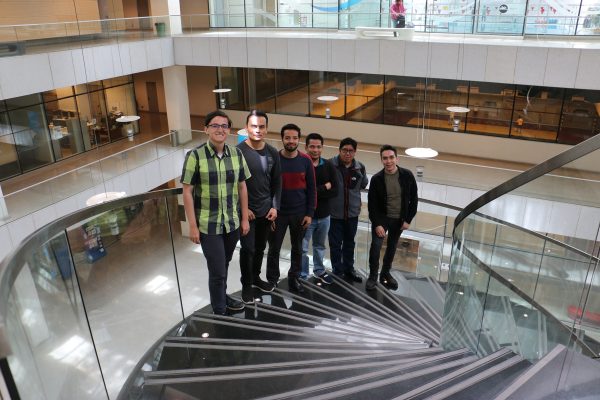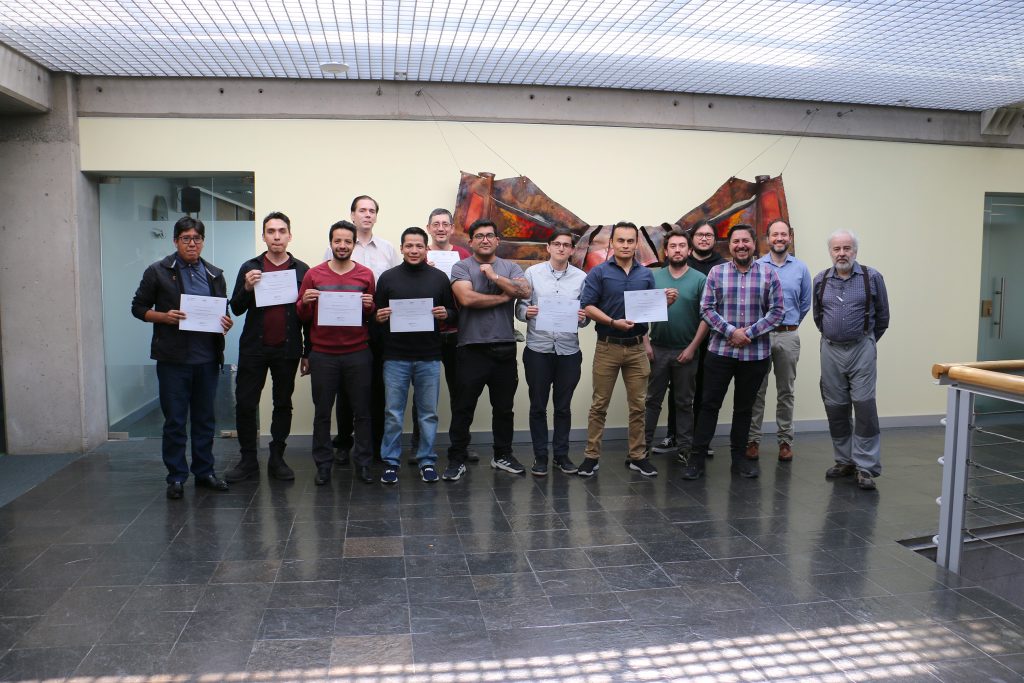
From the top 500 High performance computing systems of the world, only 6 are placed in Latin America; this makes patent the need to develop and gather technological efforts; which, by many social and economic issues are placed in second place. The HPC tools are used for economic, demographic, weather and social analysis, even for life savings when taken to medicine appliances, achieving a direct impact in decision making based on science.
The NLHPC staff set their fundamental pillar to focus efforts on the scientific community and show HPC as an essential tool for country development by getting users from diverging scientific areas, industry and public sector. This entails breaking access barriers to this kind of technology. NLHPC faces this challenge by making training for the basic use of HPC and scientific software optimization; which is key in order to make a good use of resources.
The training was carried out within a framework of computational thinking, being the process by which an individual, through his professional experience and acquired knowledge, manages to face problems of different kinds. This could be evidenced in our active participation in the resolution of the proposed activities, which enhanced our abstraction and engineering thinking. We will certainly take this vision of education and collaborative work to our professional environment, in the different roles we play as HPC administrators, teachers and students.
The proper use of computing services involves efforts to perform monitoring, control and infrastructure management tasks. With the help of the tools reviewed during our visit, we will be able to provide our users with the highest standards of quality, security and accessibility.
The joint effort of the RISC2 and EU-CELAC ResInfra projects made it possible for engineers from Colombia, Mexico and Peru to participate in this HPC management course, learn about Chilean culture, gain knowledge and valuable contacts for our profession.
After living this great experience, we hope that in the near future other supercomputing centers replicate this type of initiatives in other parts of the world, thus increasing the communication bridges between HPC administrators from different places, sharing knowledge and experiences.
We are left with the milestone of being part of the First School of HPC Administrators of Latin America and the Caribbean, with experiences that made us grow in professional, academic, and human aspects. As well as with alliances among colleagues and now friends, a network of support as brothers of the same region.
We conclude by thanking Rafael Mayo of CIEMAT for the initiative; Ginés Guerrero, Pedro Schürmann, Eugenio Guerra, Pablo Flores, Angelo Guajardo, Esteban Osorio, José Morales for the knowledge and experiences shared; RISC2 and EU-CELAC ResInfra for providing us with this learning opportunity, supporting the scholarship grant.
By:
Miguel Angel Barrera Arbelaez, Universidad de los Andes, Colombia
Carlos Enrique Mosquera Trujillo, Centro de bioinformática y biología computacional de Colombia BIOS, Colombia
César Alexander Bernal Díaz, Universidad Industrial de Santander, Colombia.
Eduardo Romero Arzate, Universidad Autónoma Metropolitana, México.
Ronald Darwin Apaza Veliz, Universidad Nacional de San Agustín, Perú.
Joel Gonzalez Lara, Centro de Análisis de Datos y Supercómputo, México
